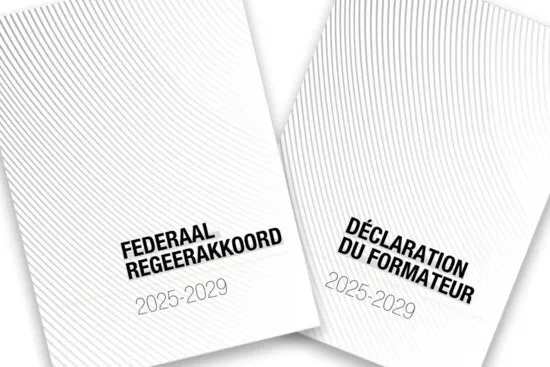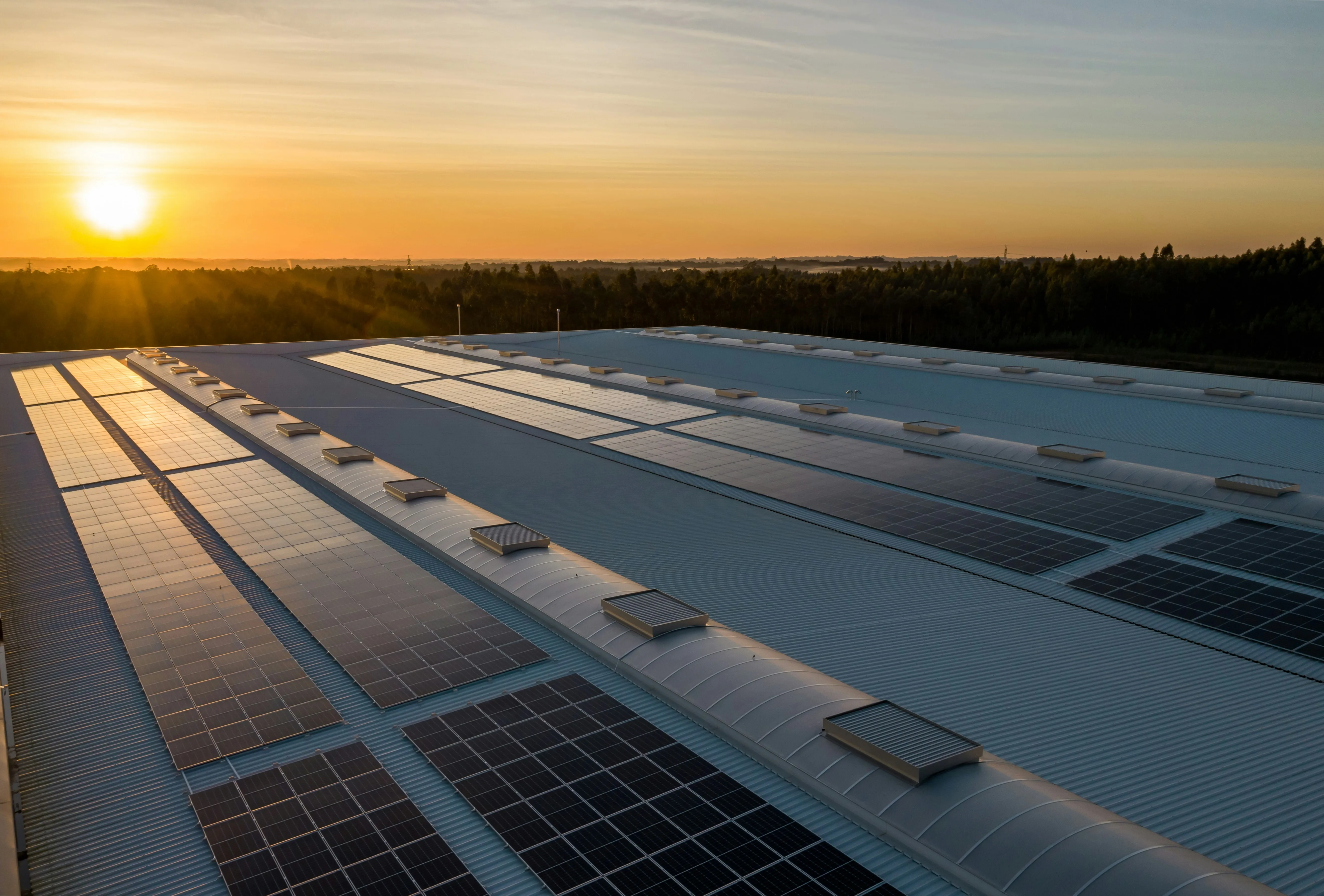
27 maart 2025
Legislation news March 2025
Federal governmental agreement on Energy 2025-2029
The federal governmental agreement has been published on 03/02. The document describes amongst others the framework for the new federal government and its Energy Minister Bihet. We selected the most important information related to energy for the industry. As it are mostly guidelines, the concrete implementation of the different topics will become clear in the near future.
The federal governmental agreement starts from the basic principles:
- Investing in emission-free energy, sustainable infrastructure and innovation for the benefit of employment and economic growth
- Ensuring that energy-intensive industries once again enjoy competitive energy prices and a stable supply, so that these sectors retain their competitive position and can continue to support our economy
- Pursuing the goals of climate neutrality by 2050 and a 55% reduction in European greenhouse gas emissions by 2030
The agreement includes the following technical priorities:
- Investments in additional small- and large-scale capacity based on the principle of technology neutrality without taboos and opt for an affordable, reliable, safe and carbon-neutral energy mix with both renewable energy and nuclear energy and other forms of carbon-neutral energy sources. The energy mix rests on three pillars: ensuring security of supply, guaranteeing affordability for citizens and businesses and being sustainable.
- Aim for a nuclear energy share of 4 GW with an ambitious programme to restart the nuclear industry in Belgium and build new nuclear reactors with the extension of existing capacity, the construction of new capacity, and the deletion of all provisions relating to nuclear phase-out and the ban on the construction of new capacity in the Nuclear Phase-out Act.
- An ambitious policy for offshore wind energy
- Forms of flexibility that reconcile nuclear energy and renewable energy, including through modulation of nuclear energy and focus on the market forces of demand-side management, decentralised and other innovative technologies.
- Belgium is resolutely profiling itself as a hub for the transport of new energy vectors such as hydrogen and its derivatives.
The ambitions of the federal government will also have a financial impact:
- Strengthen the energy standard for businesses in order to safeguard competitiveness with reduced excise rate for electricity for industry to the European minimum, and reduced transmission network tariffs for electricity for energy-intensive industries to the level of neighbouring countries
- Investigate modalities of a tax shift on energy products to achieve the climate objectives and then implement the tax shift without increasing the average bill of households and entrepreneurs. The interventions will be analysed for their consequences for prices, competitiveness and social cohesion and should result in a price signal that is favourable for electricity and carbon-neutral fuels and unfavourable for fossil fuels.
- Introduce tax benefits for companies that invest in environmentally friendly technologies and processes with investment deduction that will become fully transferable, with green investment deduction that will be simplified and made more accessible, especially for investments in the energy transition, and with the possibility to accelerate depreciation of certain investments, e.g. energy transition.
- Commit to the fair implementation of the expanded European Emissions Trading System (ETS2) supplemented by national measures to support households and businesses in their transition to sustainable technologies. The funds made available from ETS2 trading will be used exclusively to support the transition for citizens and entrepreneurs and to combat climate change.
There are more energy related topics in the federal governmental agreement. If interested, please contact us.

Relaxation of the PV obligation in Flanders
The Flemish government published on 14/03 a fundamental change to the Energy Decree regarding the PV obligation for large electricity consumers and foresees additional flexibility to comply with the regulation. After the final adjustments based on the remarks of the Council of State in the coming weeks, the decree can be approved by the Flemish government and come into force.
In essence the PV obligation is relaxed for construction (all industrial grounds), location (site of affiliated companies without participation), technology (photo-thermal installation, concentrated solar installation, heat pump), and postponement (contract for PV-installation, request for environmental permit, purchase of site, bankruptcy).
With the new regulation, the PV-installation can be built on roofs, façades, cycle sheds, carports, grounds, floating on water, and in agrarian area where the effects of implementation have been investigated.
This PV-installation can be located on the site where also the buildings are located, on the neighbouring site connected with a direct line, on another site owned by the same proprietor, and on a site of an affiliated company where for the last two locations the installation has to be commissioned after 01/01/2023.
Investment in alternative technologies can replace the PV-installation by recalculating the required nominal power and have to be installed after 01/01/2023. Wind turbine, bio-CHP, photovoltaic-thermal installation, concentrated solar power, and heat pump are now allowed.
A postponement of the obligation is possible if the building will be broken down in the next 5 years or the roof will be replaced. Also if there is an irreversible contract for a PV-installation, a request for permitting, a notarised transfer of the building or a bankruptcy, the obligation can be postponed for a certain period.
If you want to explore the options in more detail, don’t hesitate to contact us.
